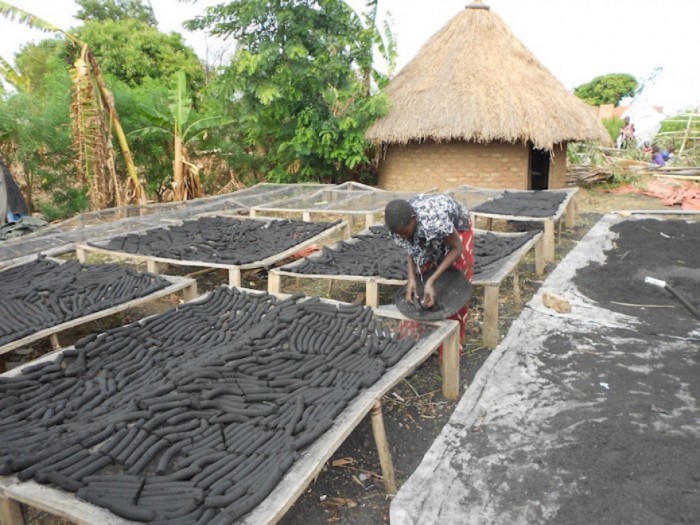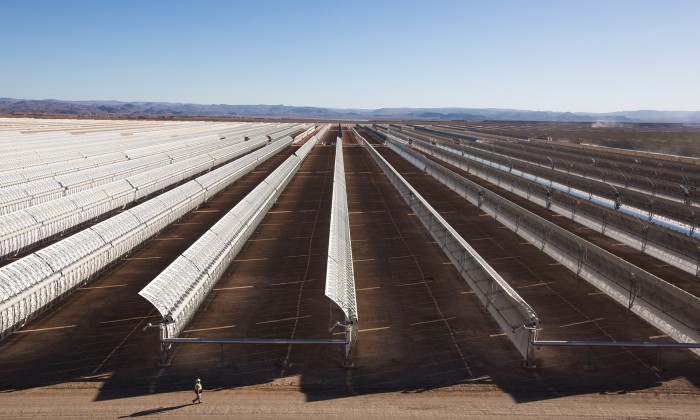A few years ago, Betty Ikalany decided to make accessible, sustainable cooking fuel in Uganda.
At the time, people from rural areas in the landlocked East African country struggled to find charcoal and wood to cook, and heat their homes.
The same people suffered the effects of biomass cooking: poor health as a result of smoke inhalation and an environment struggling to keep up with deforestation.
So Ikalany, a Ugandan entrepreneur from the Soroti District, worked on an alternative.
“I began by using cow dung, but my community said it smelt too bad and they didn’t want to use it,” she said three years ago. “Then I tried soaking recycled paper and molding it into blocks, but I found it was very smoky.”
Finally, Ikalany began using carbonised groundnut shells to create her briquettes. She still uses this material today at the company she went on to establish, AEST (Appropriate Energy Saving Technologies) Uganda.
A woman-led enterprise, AEST employs local women to make and sell the briquettes as well as energy-saving stoves.
Effective and smokeless, her company’s groundnut shell briquettes are 20 per cent cheaper than charcoal and firewood, and are made using waste materials provided by a network of 32 farmers in her area.
“It is a scalable product,” added Ikalany. “Clean fuel sources are a problem across the whole of Uganda. The briquettes can be made of difference agricultural waste depending on what is farmed in each region. Here [in the Soroti district] we use groundnut shells, but you can also use maize stalks or bean stalks.”
Ikalany’s enterprise is a localised, holistic solution to a global problem. Efforts to provide clean, sustainable energy are stalling around the world.
According to new data released by the United Nations, the World Bank and other international organisations, the Sustainable Development Goal to provide universal access to electricity and clean energy alternatives is failing.
Of the 1 billion people who lack access to electricity, only about a third will get access to it by 2030 and by then, around 2 billion people will still be cooking with unsafe, unhealthy and unsustainable fossil fuels. The majority of these people are from sub-Saharan Africa and South Asia.
But gains in East Africa are a hopeful sign. Speaking at a two-day forum in Lisbon Vivien Foster, global lead for energy economics with the World Bank, attributed the gains to a rise in small-scale solar power in Tanzania and Kenya.
While in Rwanda, the government is backing off-grid solar power as a major player in their race to provide electricity to all the country’s people by 2024.
Meanwhile, in the north of the African continent, Morocco is building a solar farm as big as Paris on its High Atlas mountains. It’s expected that by 2020 the $9 billion solar power plant will generate enough electricity to power over a million homes.
For IRENA’s Adnan Amin, one of the companies involved in drafting the report, the progress in Africa and Asia is a sign to ramp up efforts.
“Falling costs, technological improvements and enabling frameworks are fueling an unprecedented growth of renewable energy, which is expanding energy access, improving health outcomes, and helping to tackle climate change, while also creating jobs and powering sustainable economic growth,” said Amin.
“At the same time, this tracking report is an important signal that we must be more ambitious in harnessing the power of renewable energy to meet sustainable development and climate goals, and take more deliberate action to achieve a sustainable energy future.”
Ultimately, the support of policymakers and the private sector creates an ideal environment for off-grid, sustainable technologies like that of Ikalany in Uganda to grow and thrive.
Additional reporting by Katie De Klee.
Read More:
The full Energy Progress Report 2018
Innovative bike hack provides zero electricity machinery in Guatemala








